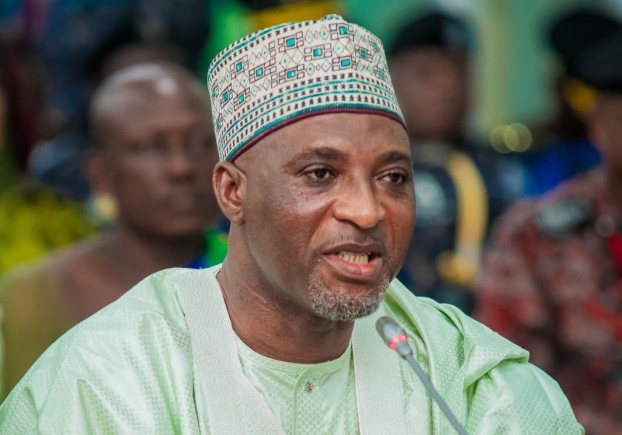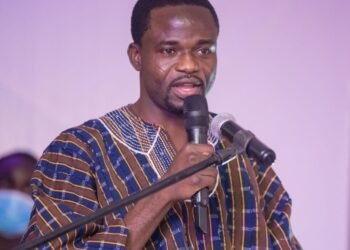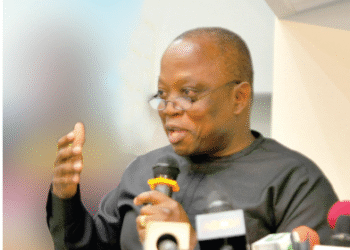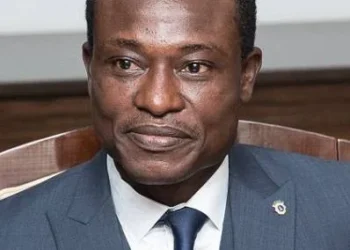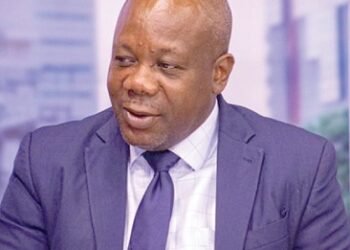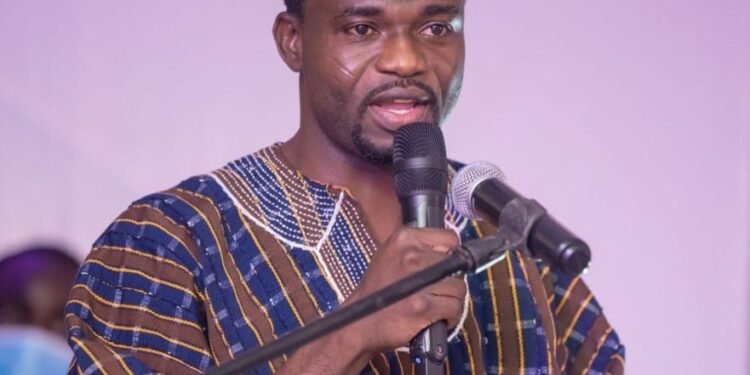Ghana’s Minister for Interior and Member of Parliament for Asawase, Hon. Mohammed Muntaka Mubarak, has paid a deeply personal tribute to the late Dr. Edward Omane Boamah, describing him as one of his strongest allies in the fight against illegal mining, popularly known as galamsey.
Speaking with emotion, Hon. Muntaka recalled how Dr. Boamah combined calmness with strategic resolve, and how his quiet but firm leadership inspired commitment among colleagues to take the battle against the environmental menace seriously.
“In this area, I found the biggest ally in Dr. Omane,” Hon. Muntaka said, noting that while many saw him as unassuming, he was also “very calm, very tactical” and “very, very strategic.” He lamented that the country had lost “such illustrious sons” in a struggle that had already demanded so much from those determined to protect Ghana’s environment.
Recounting a defining moment during a high-level ministerial meeting with President John Dramani Mahama, Hon. Muntaka said Dr. Boamah made a solemn public commitment that none of the ministers present — nor anyone close to them — would be involved in galamsey, directly or indirectly.

“He demanded that all of us make the same promise. I was thinking about how my colleagues would react to this. After the meeting, I asked Dr. Boamah privately why he had taken such a bold step.
“The late minister explained that many of those at the table came from regions where galamsey was prevalent — himself from the Eastern Region, Muntaka from Ashanti, Callistus Mahama from the Savannah Region, and Emmanuel Armah Kofi Buah from the Western Region. We need to make the President confident that none of us is involved in this, and I assured him we are going to take this fight head-on.”
Hon. Mohammed Muntaka Mubarak
That commitment did not end with words. According to Hon. Muntaka, Dr. Boamah went further, telling President Mahama that if he failed to deal with galamsey, he would put his job on the line.
“He wanted all of us to make the same pledge — that if we failed to succeed, we should put our jobs on the line,” Hon. Muntaka said. The Interior Minister admitted that the challenge surprised many, but it also injected “a new energy in almost all of us” to pursue the goal of ending the practice.
Omane Boamah’s Helicopter Dislike
Hon, Muntaka shared a more personal detail — that Dr. Boamah disliked travelling by helicopter and avoided it whenever possible. “Since we came, he has never boarded any of the helicopters,” Hon. Muntaka explained, noting that he himself, along with colleagues like Haruna Iddrisu and Mahama Ayariga, used them more frequently due to the demands of their work.

He recounted an incident the weekend before the fatal crash. The President had asked him to handle an urgent assignment in Tamale, and he requested a helicopter from the Air Force.
As the protocol required, the request was passed to the minister. But Dr. Boamah objected strongly. “He said, ‘Why are you using this helicopter? Why don’t you use the CASA? CASA is safer,” Hon. Muntaka recalled. Despite concerns about cost and efficiency, Dr. Boamah insisted on the safer option, even calling to have the aircraft switched.
It was therefore deeply painful, Hon. Muntaka said, that because of his commitment to the anti-galamsey fight, Dr. Boamah agreed to travel by helicopter—for the first time in his service—to carry out an assignment linked to the cause he had pledged himself to.
“Yet, the first time he used it, he never returned. You understand why some of us are broken, why we are devastated,” he said. For Hon. Muntaka, the loss is personal, political, and national.
He described it as “a mental loss” to the state, the government, and to him personally, praying for President Mahama to find the strength to carry the grief, given his close bond with Dr. Boamah.
According to him, the best way to honour those who lost their lives on August 6, 2025 Helicopter crash is for the nation to end galamsey.
He urged Ghanaians, especially in mining communities, to appreciate that these men died trying to correct a wrong and to create an environment where legitimate small-scale mining could thrive without destroying forests, rivers, and water bodies.
He explained that the government had been working to create opportunities for small-scale miners in approved areas — including land released by large corporate mining companies — but stressed that mining in water bodies, forest reserves, and protected riverbanks must end. “If we are able to end this menace, we will have respected their wish,” he said.

The Interior Minister called on citizens to help protect the environment as a living legacy to the fallen. “Let’s end it,” he appealed. “If we succeed, we will have honoured their strength and sacrifice — not only for ourselves, but for those they have left behind.”
For Hon. Muntaka, the message is simple: the clean rivers, preserved forests, and safe communities that result from ending illegal mining will be the truest memorial to Dr. Omane Boamah and others who died in service to this cause. “This is something that, if we are able to succeed in doing, we will have honoured their strength and sacrifice,” he said.
READ ALSO: Cedi Gains Muscle as BoG’s Gold Holdings Climb Past 34 Tonnes

